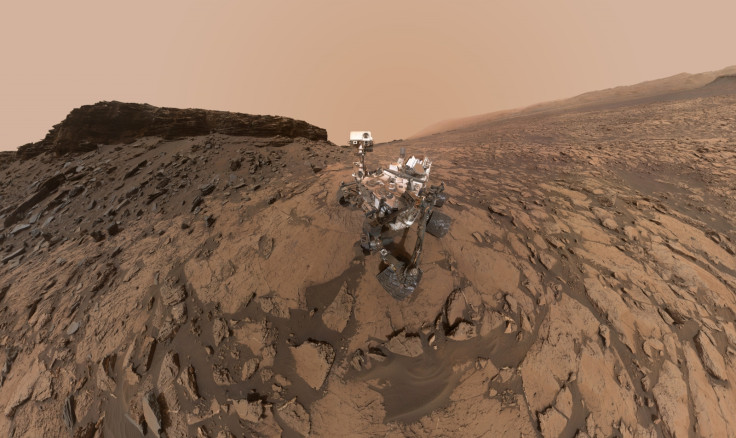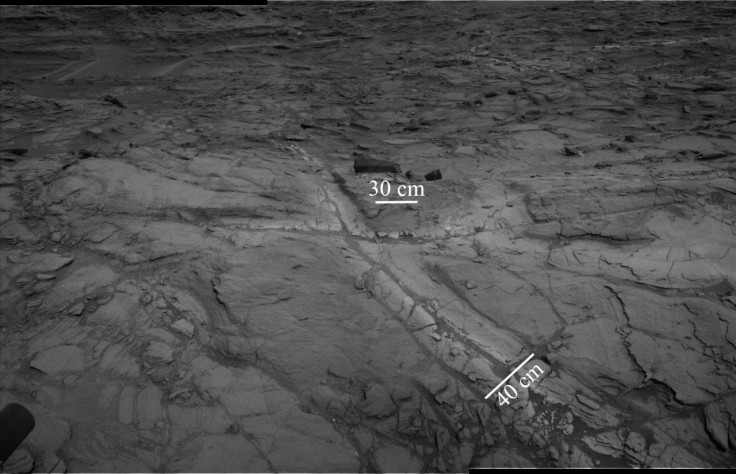Life on Mars? Curiosity rover finds new evidence of long-term groundwater on the red planet
Life may have existed on Mars much earlier than previously thought.

New evidence found by the Curiosity Rover on the Gale crater on Mars suggests there may have been water present on the red planet longer than previously thought.
The rover had previously revealed that the Gale crater, situated south of the Martian equator and believed to be about 3.8 billion years old, was once likely an enormous lake that stretched for miles "with water that we would even have been able to drink", said Jens Frydenvang, a scientist at Los Alamos National Laboratory and the University of Copenhagen and lead author of the new study.
Now new data hints the crater not only held water, but that it was retained in the ground for much longer than previously believed.
The rover picked up data from lighter-toned bedrock in the crater that surrounds fractures and comprises high concentrations of silica called "halos". These deposits likely came from deeper deposits of rock that were carried to the surface by seeping flows of groundwater indicating a much longer presence of the liquid on the planet beneath its surface.
"The concentration of silica is very high at the centerlines of these halos," said Frydenvang.
The new find once again boils down to just one question – was there ever life on Mars? Nasa has previously said that there may have been life on the red planet after analyzing the geological collections by the Rover, but this find suggests the period of life, if there was one, may have existed for much longer than what was earlier assumed.
"Even when the lake eventually evaporated, substantial amounts of groundwater were present for much longer than we previously thought—thus further expanding the window for when life might have existed on Mars," said Frydenvang.

Nasa and other private parties such SpaceX have already chalked out Mars missions for the future, including manned ones with Elon Musk hinting at colonisation of the red planet. Geological and atmospheric evidence along with a suitable distance from Earth makes Mars the most preferred planet among the scientific community for exploration.
The full research has been published in the Geophysical Research Letters.
© Copyright IBTimes 2025. All rights reserved.





















